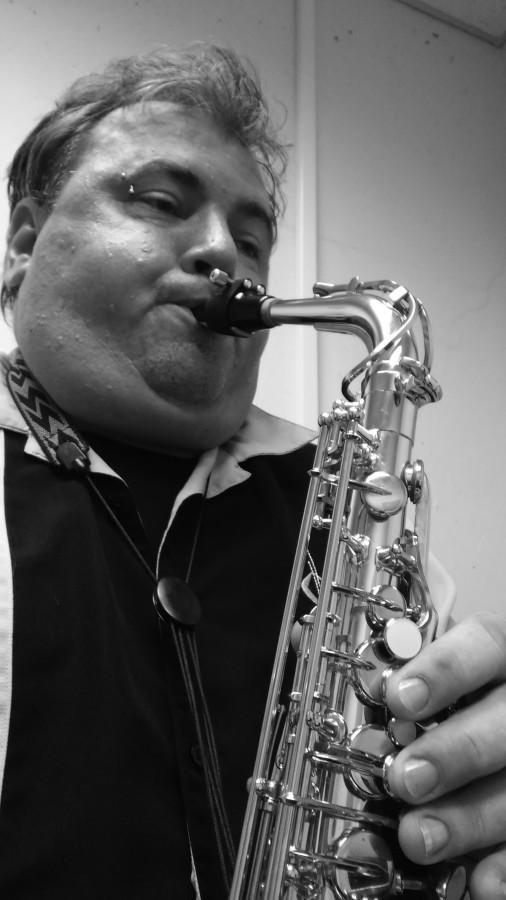Mending with Music: A New Therapy Uses Music to Treat Illness
April 27, 2015
The typical image of therapy is fairly standard, often coming from memories of watching Looney Tunes and Animaniacs as a child- a psychiatrist with circular glasses and a long couch, a long conversation discussing how you feel and other such things.
But instead of standard therapy measures, hospitals and many other locations across the country have picked up a guitar, or simply played a CD.
Music therapy, a new therapeutic treatment being offered to patients for a variety of ailments and mental illnesses, is a unique new approach to pain and mental health.
“Music therapy is where you use different music modalities- piano, guitar, singing… to help people with different types of disorders or diseases,” says Johnny Litzinger, pre-music therapy junior.
“You can help people with dementia, you can help people with autism, Alzheimer’s and help people who’ve had strokes speak again. You’re like a regular therapist, but you use music as your tool instead of just therapy or behavioral therapy.”
A recent development in the realm of therapeutics, recent research into music has yielded results regarding the effect music has on the brain. Ranging from relieving stress and reducing pain, music even has an effect on the body itself, helping motor skills and tension.
“It’s become big recently mainly because research has proven it works,” said Litzinger in regards to music therapy’s rise in use. “Research has shown that it does help people learn to speak again, it calms people down, it helps people with addictions seek out their problems and get a new way of dealing with things.”
Litzinger began playing instruments when he was a young child, and has continued to develop his skills. Returning to IU Southeast with the goal of using his interest in music to help people, the music therapy major took on a minor in pre-cognitive therapy.
“I was looking up into what I wanted to do- I didn’t want to be a band director or a music director, so I started looking around and I found music therapy. I have a love of helping people out, I love psychology… I put the two together and it works.”
As Litzinger explained how music works, he gave an example.
“Think about a song from many, many years ago,” he said. “You may not remember all the words right now, but the moment you hear it playing on the radio, it’ll all come back to you. Basically, your brain creates all these neuropathways to remember things or create new things. Music helps in bringing (those pathways) back.”
Music Therapy has even begun making tracks here in the local area. At Norton Hospital in downtown Louisville, music therapy has become a highly utilized tool.
“They may go into a patient’s room who’s just recently had a surgery and they may play a soft song or a song that they like to reduce their pain after surgery so they don’t have to give the patient so many medications,” says Litzinger. “Say you have an elderly person in the hospital for the first time. [Music therapy] might help them calm down the first couple nights there.”
With so many people across various spectrums of life, many may be reaping the benefits of music and not realizing it.
For Litzinger, it’s natural.
“Music to me is… it’s a way of communicating with sounds and beats and rhythms. It’s a language of sound and rhythms and sounds and pitches. It helps calm me down, it gets me motivated, (and) I don’t miss a class because I learn something every single day.”


